 |
|
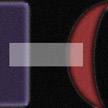 |
Apt
Decision (1999-Present)
by Sybil Shearin,
Henry Lieberman
Apt Decision assists users in making decisions on complex
purchases such as real estate while recording their preferences in
a profile for later use. In complex domains, priorities and
preferences often change in the process of exploration. Apt
Decision infers general preferences from a history of relatively
unconstrained reactions to specific examples.
|
 |
|
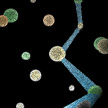 |
Letizia (1995-Present)
by Henry Lieberman
Letizia is a user interface agent that assists a user browsing the
World Wide Web by learning the user's interests and scouting ahead
from the user's current position to find Web pages of possible
interest.
|
 |
|
 |
Segué (2000-Present)
by
Sybil Shearin
Segué is a web browsing agent that can discern the user's changes
of interest by examining browsing history. The agent represents
the pages in your browsing history, not via a hierarchical list or
graph, but by using a series of "skeins" which represent changes
in interest over time.
|
 |
|
 |
Amalthea (1996-1999)
by Alexandros G. Moukas,
Pattie Maes
Amalthea is an artificial ecosystem of evolving
information-filtering and discovery agents that cooperate and
compete in a market-like environment.
|
 |
|
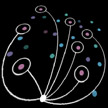 |
Butterfly
(1998-1999)
by Neil W. Van Dyke
Butterfly is an agent that samples thousands of real-time
conversational groups and recommends ones of interest.
|
 |
|
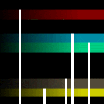 |
BUZZwatch (1996-2000)
by Michael Best,
Pattie Maes
BUZZwatch distills and tracks trends, themes, and topics within
collections of texts across time (such as Internet discussions,
newspaper archives, and Web pages).
|
 |
|
 |
Calendar Agent (1992-1993)
by Robyn
Kozierok,
Pattie Maes
The Calendar Agent learns a user's calendar scheduling rules and
preferences by observing the user's actions and receiving direct
feedback.
|
 |
|
 |
Challenger (1996)
by
Alexandros G. Moukas,
Anthony Chavez,
Pattie Maes
Challenger is a multi-agent system that performs completely
distributed resource allocation of CPU time.
|
 |
|
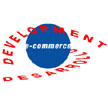 |
Development E-Commerce (1999-2001)
by Michael Best,
Pattie Maes
We are developing technologies and community methodologies in
electronic commerce for social and economic development. We study
e-commerce technologies and system software that are appropriate
and appropriable by the majority world.
|
 |
|
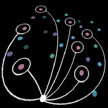 |
Electronic Profiles (1999-Present)
by
Sybil Shearin,
Control of and easy access to electronic profile information is
becoming more important as ecommerce grows. Current ecommerce
practices have led to widespread buying and selling of consumer
information. The goal of this project is to develop a new
representation for electronic profile data and a system to provide
client-based profile representation and management.
|
 |
|
 |
e-markets Special Interest Group
(1999-2001)
by
Pattie Maes,
et al.
The e-markets special interest group (SIG) encourages closer
collaboration among a select group of Media Lab faculty members
and sponsors on the topic of electronic markets. The SIG will
invent the new forms that transactions may take in a networked
world, and explore the new social and economic order that may
result from these changes.
|
 |
|
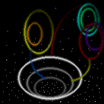 |
Expert Finder (1997-2000)
by Adriana S. Vivacqua
The Expert Finder helps people find experts who can assist them
with their problems. In this way, the agents help leverage
knowledge from a community of people.
|
 |
|
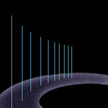 |
Footprints (1996-1999)
by Alan Wexelblat
Footprints is an application of the ideas of interaction history
to the problem of social navigation; that is, using information
left by other people to help you find your way around.
|
 |
|
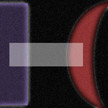 |
Friend of a
Friend Finder (1996-1998)
by Nelson Minar,
Alexandros G. Moukas,
Pattie Maes
Friend of a Friend Finder (FFF) is a network of agents that
enables using social networks to get answers to personal
questions.
|
 |
|
 |
Hanging Messages
(2000-2001)
by Emily L. Chang,
Pattie Maes
Hanging Messages allow the sender to specify not only the
recipient(s) of a message, but also the location and time of
delivery. The added context increases the relevancy of received
messages, which are delivered to mobile devices.
|
 |
|
 |
HeretoThere (1999-2000)
by Dennis Gregorovic
HeretoThere is a simulation written in Java that can test the
effectiveness of several different market-based strategies for
allocating location-based tasks to agents.
|
 |
|
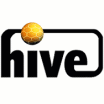 |
Hive (1998-2000)
by Raffi C. Krikorian,
Nelson Minar,
Matthew K. Gray, Oliver
R. Roup
Hive uses an ecology of distributed mobile agents to coordinate
applications over the Internet. Hive aims to be the connectivity
later to network Things That Think.
|
 |
|
 |
HOMR (1993-1995)
by Max Metral, Upendra Shardanand,
Pattie Maes
HOMR automates the word-of-mouth process, learning about the user
and his/her opinions, and leveraging that information to best
serve the user's needs. It is the predecessor of the Firefly
technology.
|
 |
|
 |
Impulse
(1999-2001)
by Joan Morris,
Jim Youll,
Pattie Maes
Impulse explores a scenario in which e-commerce meets
'brick-and-mortar' commerce through a system of buying and selling
agents representing individual buyers and sellers that engage in
multi- parameter negotiation and run on wireless mobile devices.
|
 |
|
 |
InShop: Item Recommender, Recipe Recommender, Mapper
(2000-2000)
by Daniele De Francesco, Raffi
C. Krikorian, Joan
Morris, Jeffrey C. Mellen
InShop is an implementation of the Impulse scenario. While you
walk through a supermarket, these agents work in the background to
assist you with item, coupon, and recipe recommendations.
|
 |
|
 |
Learning
Curve (1999-2001)
by Joan Morris,
Pattie Maes
In a marketplace of dynamic pricing, where agents make strategic
decisions for buyers and sellers, how can a seller make sense of
it all?
|
 |
|
 |
Let's Browse (1997-Present)
by
Henry Lieberman,
Neil W. Van Dyke
Adriana S. Vivacqua
Let's Browse is a collaborative Web browsing kiosk that uses
pre-computed interest profiles of people detected in front of it
to guide a navigation through the Web.
|
 |
|
 |
MARI: Multi-Attribute Resource
Intermediary (2000-2001)
by Gaurav Tewari,
Pattie Maes
MARI is an intermediary architecture intended as a generalized
platform for the specification and brokering of heterogeneous
goods and services.
|
 |
|
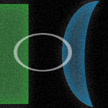 |
Kasbah (1996-1999)
by Keith D. Smith,
Robert H. Guttman,
Pattie Maes,
Alexandros G. Moukas,
Giorgos Zacharia
Kasbah is an ongoing multi-agent system research project to help
realize a fundamental transformation in the way people transact
goods -- from requiring manual effort and constant monitoring to a
system where software agents do much of the work on each user's
behalf.
|
 |
|
 |
Market Maker (1998-2000)
by David Wang
Market Maker is an E-commerce infrastructure for dynamic market
creation.
|
 |
|
 |
Maxims (1993-1994)
by Max Metral, Yezdi Lashkari,
Pattie Maes
Maxims is E-mail filtering application employing agents that
collaborate to overcome the problem of having to "learn from
scratch."
|
 |
|
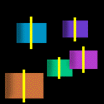 |
MindShare
(1998-2000)
by Neil W. Van Dyke
MindShare facilitates sharing of knowledge within an organization
with little or no additional human effort, using a personalized
collaborative ontology development approach.
|
 |
|
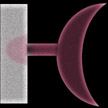 |
Mobile Agents for Routing Discovery (1997-1999)
by Nelson Minar,
Kwin Kramer
Studies and simulations towards using mobile agents to map dynamic
network topologies.
|
 |
|
 |
Mondrian (1993-1995)
by
Henry Lieberman
Mondrian is a teachable graphical editor that allows a domain
expert who is not a programmer to construct representations of
objects and procedures directly from a video of a human performing
an example procedure.
|
 |
|
 |
NewT (1993-1994)
by Beerud Sheth,
Pattie Maes
NewT uses keyword-based filtering and machine learning (relevance
feedback and genetic algorithms) to personalize the presentation
of Usenet news.
|
 |
|
 |
PDA@Shop (1997-1999)
by Giorgos Zacharia,
Alexandros G. Moukas,
Pattie Maes
PDA@Shop combines mobile agents and handheld computers for
point-of-sale comparison shopping.
|
 |
|
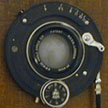 |
Periscope (2000-2001)
by Jim Youll
A virtual browser for the physical world, with a tangible
interface.
|
 |
|
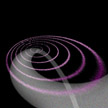 |
Remembrance Agents (1995-2000)
by Bradley J. Rhodes
Remembrance Agents are proactive just-in-time information systems
that use a person's current environment to recommend useful
information.
|
 |
|
 |
Restaurant Recommendation System
(1999-2000)
by Mukul Kundu,
Pattie Maes
This system will be able to make restaurant recommendations by
utilizing collaborative filtering techniques and user profiling.
The system's primary interface will be a web-enabled Nokia WAP
phone.
|
 |
|
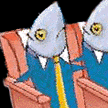 |
Sardine
(1999-2001)
by Joan Morris,
Pattie Maes
The Sardine System presents a new model for airline ticket
bidding, demonstrating our vision for interfaces that facilitate
negotiation between buyers and sellers.
|
 |
|
 |
Reputation Mechanisms (1997-2000)
by Giorgos Zacharia,
Pattie Maes
In this project we are focusing on reputation mechanisms for
e-commerce. We are surveying existing reputation mechanisms and
inventing new ones for use in Kasbah and its successors.
|
 |
|
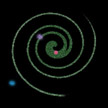 |
Straum (1997-1999)
by Nelson Minar
Nelson's master's thesis is on building an application to
represent people's presence on the Internet by creating an ecology
of distributed agents.
|
 |
|
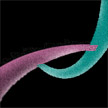 |
Tete-a-Tete (1997-2000)
by Robert H.
Guttman, Fernanda
Viegas, Alex Kleiner,
Pattie Maes
,
Judith Donath
Tete-a-Tete (T@T) helps online merchants differentiate themselves
by helping consumers match their needs with merchants' value-added
offerings via agent-mediated integrative negotiation techniques.
|
 |
|
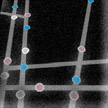 |
Trafficopter (1997-2000)
by
Alexandros G. Moukas
Trafficopter uses a decentralized, self-organizing network of
devices in vehicles to collect and communicate road traffic
information.
|
 |
|
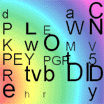 |
Visigeek
(1999-2000)
by Jim Youll
The VisiGeek displayer enables the visual comparison of otherwise
non-visual datasets. The visualizer highlights differences in the
data using patterns, letter-shapes and motion. |
 |
|
 |
Webdoggie (1994-1995)
by Yezdi Lashkari,
Pattie Maes
Webdoggie is a system that uses collaborative filtering to help
people find Web pages in which they may be interested.
|
 |
|
 |
Wherehoo
(2000-2001)
by Jim Youll,
Raffi C. Krikorian
Wherehoo is an infrastructure element of the Media Lab's Impulse
project, primarily for use by personal software agents that
explore and interact with agents representing places in the
physical world.
|
 |
|
 |
World
Dialog (1999-2000)
by Jim Youll,
Michael Best,
Pattie Maes
|
 |
|
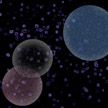 |
Yenta (1995-2000)
by
Lenny Foner
Yenta is a distributed, privacy-protected, agent-based system that
finds clusters of people with common interests.
|
 |
| |
|
| |
|
